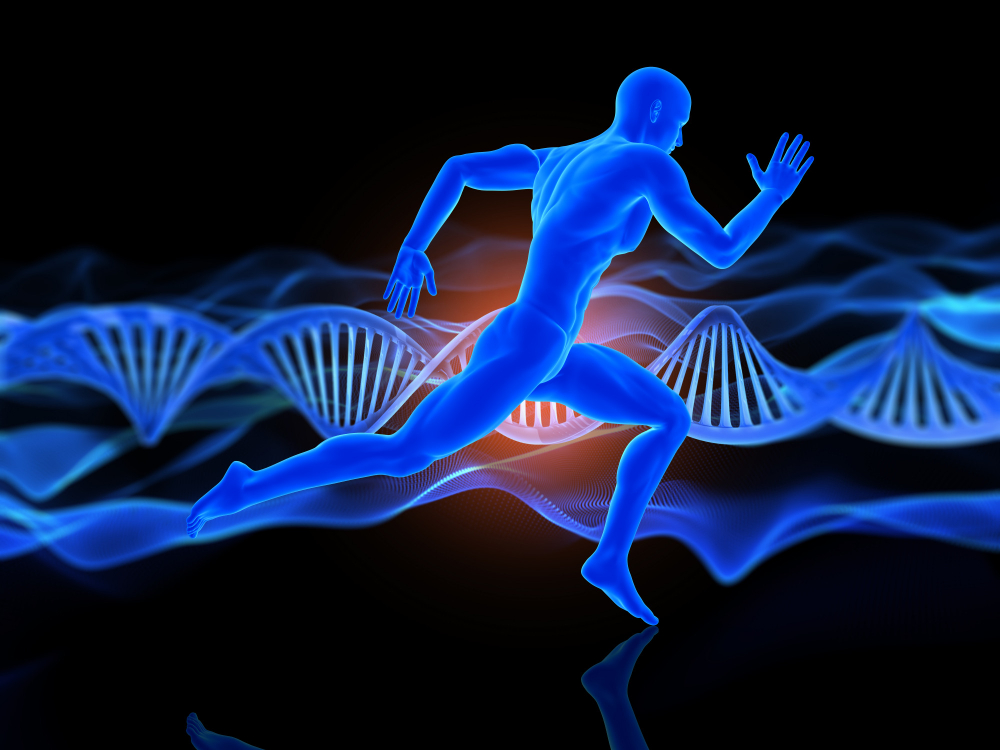Our genetic makeup serves as the foundational blueprint upon which our physical and mental well-being is built. From our predisposition to certain diseases to our athletic abilities and metabolic tendencies, genetics play a pivotal role in shaping every aspect of our fitness journey. Join me as we embark on a journey of discovery to unravel the mysteries of genetic fitness and explore why understanding our genetic blueprint is crucial for achieving optimal health and wellness.

Table of Contents
7 Interesting Facts about Genetic Fitness
1. Unique genetic makeup
At the heart of genetic fitness lies our DNA – the molecular blueprint that encodes the instructions for building and maintaining our bodies. Our DNA contains a unique sequence of nucleotides that determine our traits, characteristics, and susceptibility to various health conditions. By decoding this intricate genetic code, scientists have uncovered a wealth of information about how our genes influence our fitness levels, metabolism, and overall health.
2. The Role of Genetics on physical abilities
Genetics influence nearly every aspect of our fitness journey, from our body composition and muscle strength to our endurance and athletic performance. Certain genetic variations, known as polymorphisms, can predispose individuals to excel in specific sports or physical activities, while others may impact factors such as metabolism, energy expenditure, and recovery time. By understanding our genetic predispositions, we can tailor our fitness routines and nutrition plans to optimize our performance and achieve our goals more effectively.
3. Genetic Fitness and Disease Risk
In addition to influencing our physical abilities, genetics also play a crucial role in determining our susceptibility to certain diseases and health conditions. Certain genetic mutations or variations can increase the risk of developing conditions such as heart disease, diabetes, obesity, and cancer. By identifying these genetic risk factors early on, individuals can take proactive steps to mitigate their risk through lifestyle modifications, personalized nutrition plans, and targeted interventions.
4. Response to Exercise
Genetics also play a role in how individuals respond to exercise and training stimuli. Some people may experience greater gains in strength, endurance, or muscle mass in response to certain types of exercise, while others may see limited results due to genetic factors.
5. Nutrient Sensitivity
Genetic variations can influence how individuals respond to different nutrients and dietary factors. For example, some people may have variations in genes related to lactose intolerance, gluten sensitivity, or caffeine metabolism, affecting their dietary choices and nutritional needs.
6. Epigenetic Factors
While genetics provide the foundation for health and fitness, lifestyle factors and environmental influences also play a significant role in shaping genetic expression. Epigenetic factors, such as diet, exercise, stress, and sleep, can influence how genes are activated or suppressed, impacting overall health and wellness.
7. Personalised Fitness and Nutrition
Understanding one’s genetic makeup can inform personalized fitness and nutrition plans tailored to individual needs and goals. By identifying genetic predispositions and responses to exercise and dietary factors, individuals can optimize their health, performance, and well-being.

8 Strategies to Incorporate Genetic Fitness into Our Wellness Journey
Embracing overall fitness through genetic fitness involves leveraging knowledge of one’s genetic makeup to optimize exercise routines, nutrition plans, and lifestyle choices. Let’s discuss some strategies for incorporating genetic fitness into our wellness journey.
1. Genetic Testing and Analysis
Start by undergoing genetic testing to gain insights into your genetic makeup, including factors such as metabolism, muscle composition, and disease risk. Work with a healthcare professional or genetic counsellor to interpret the results and understand how they may influence your fitness and health.
2. Tailored Exercise Programs
Use genetic insights to tailor your exercise routine to align with your genetic predispositions and goals. For example, if you have genetic variations associated with endurance performance, focus on aerobic activities like running, cycling, or swimming. If you’re predisposed to strength and power, incorporate resistance training exercises into your workouts.
3. Optimized Nutrition Plans
Customize your nutrition plan based on your genetic profile to support your fitness goals and overall health. Identify genetic variations related to nutrient metabolism, food sensitivities, and dietary preferences to make informed choices about macronutrient ratios, food choices, and supplementation strategies.
4. Individualized Recovery Strategies
Consider your genetic predispositions when developing recovery strategies to optimize muscle repair, reduce inflammation, and enhance recovery after workouts. Adjust factors such as sleep quality, hydration, and stress management techniques based on your genetic insights to support optimal recovery and performance.
5. Preventive Health Measures
Use genetic information to identify potential health risks and take proactive steps to mitigate them through lifestyle modifications and preventive healthcare measures. For example, if you have genetic variants associated with increased risk of heart disease or diabetes, prioritize cardiovascular exercise, maintain a healthy weight, and monitor key health indicators regularly.
6. Holistic Wellness Approach
Take a holistic approach to wellness that incorporates genetic fitness alongside other factors such as mental health, stress management, and social support. Balance your fitness routine with activities that promote mental well-being, such as meditation, yoga, or hobbies that bring you joy and fulfilment.
7. Regular Monitoring and Adjustments
Continuously monitor your progress and adjust your fitness and nutrition plans based on feedback from your body and genetic insights. Periodically reassess your goals, revisit your genetic test results, and make any necessary adjustments to ensure that your approach remains aligned with your evolving needs and objectives.
8. Education and Awareness
Stay informed about advancements in genetic research and fitness science to deepen your understanding of how genetics influence fitness and health. Engage with reputable sources, attend educational workshops or seminars, and seek guidance from qualified professionals to expand your knowledge and make informed decisions about your wellness journey.
Conclusion
Genetic fitness is a cornerstone of our overall health and wellness, providing valuable insights into our physical abilities, disease risk, and optimal fitness strategies. By unlocking the secrets of our genetic blueprint and harnessing the power of personalized fitness and nutrition plans, we can optimize our health, enhance our performance, and unlock our full potential. Let us embrace the journey of genetic fitness with curiosity, determination, and a commitment to lifelong well-being.
